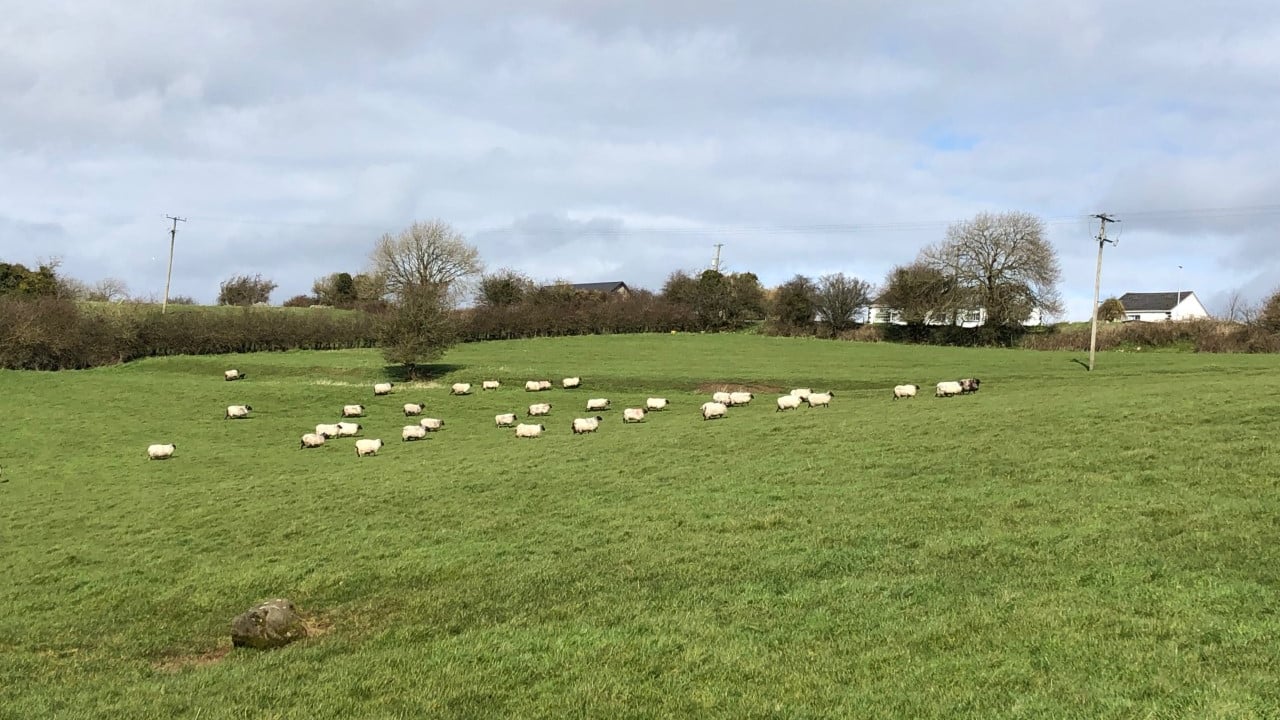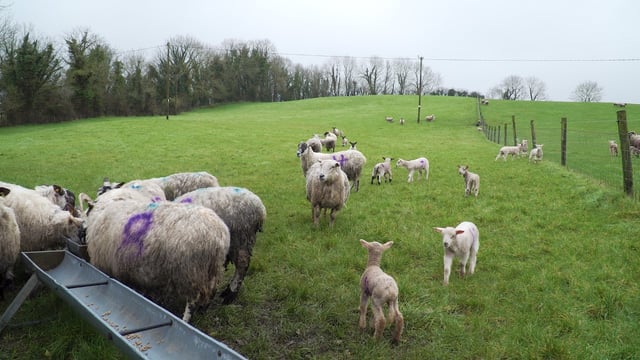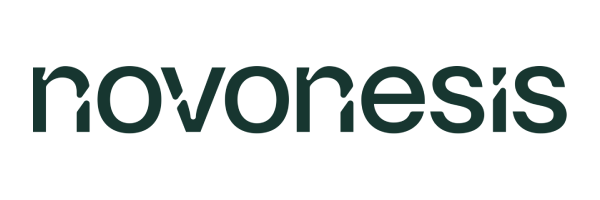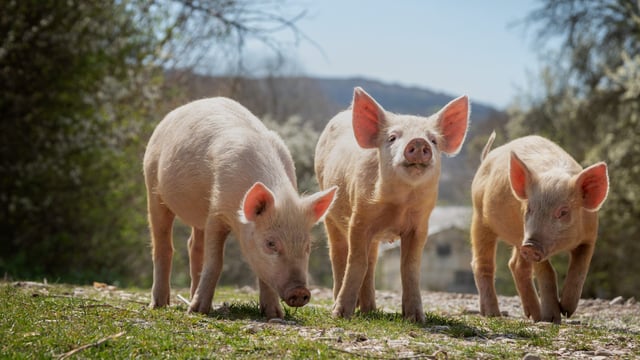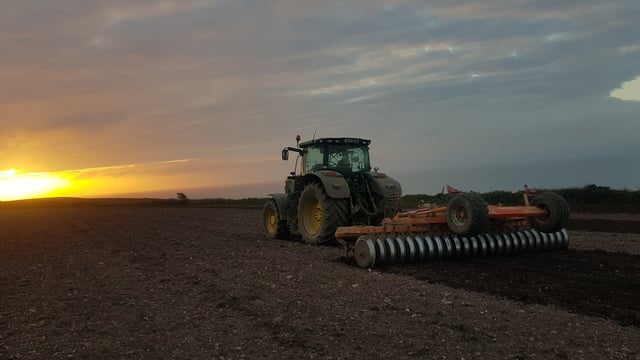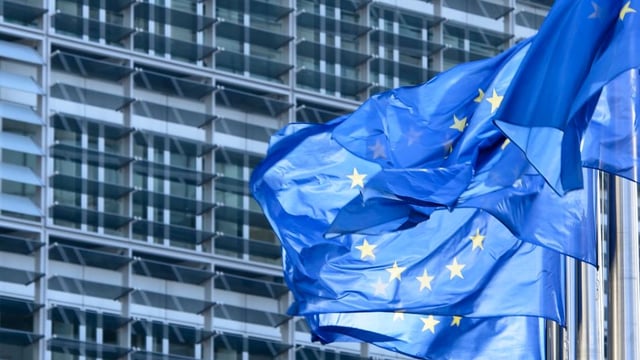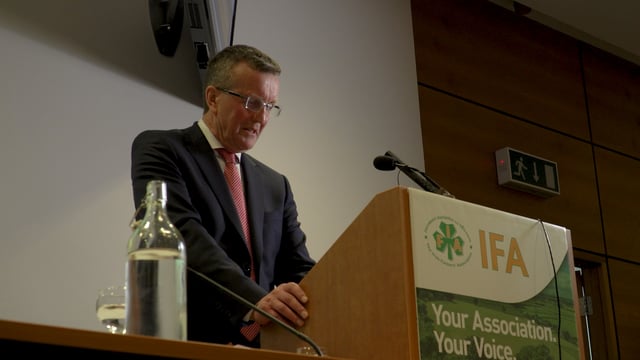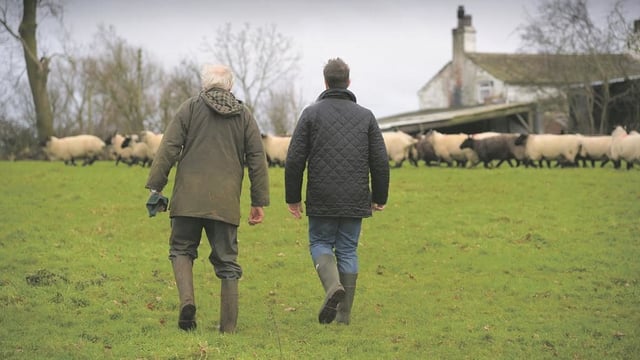Latest coronavirus updates for farmers…as they happen [April week 1]
The country is in the midst of the Covid-19 (coronavirus) outbreak.
Here (below) are the latest farming-related updates and developments (from April 1 until April 5, 2020).
[colored_box color="green"]Sunday, April 5[/colored_box]
8:43pm: Labour database now ‘operational across the 12 Teagasc regions’
Tom Curran – from Teagasc – confirmed that the (previously-announced) Regional Farm Labour Database is “now operational across the 12 Teagasc regions”.
Calls have reportedly already been received and referred on to the Farm Relief Services (FRS). The initiative is being run with the support of the Irish Farmers’ Association (IFA) and Irish Creamery Milk Suppliers’ Association (ICMSA).
12:29pm: Government must ‘protect CAP in post Covid-19 budget negotiations’
The Irish Government must resist any attempt to reduce Common Agricultural Policy (CAP) funding as a result of the Covid-19 crisis. This was the message from Billy Kelleher, Fianna Fáil MEP on Sunday, April 5.
11:38am: IFA levels allegations at SuperValu…following beef ‘coding error’
IFA president Tim Cullinan said that “SuperValu must now clarify its beef-purchasing policy”.
He claimed that beef sold in one of SuperValu’s stores was labelled as being from Azerbaijan.
He noted: “At a time when Irish farmers are being told by processors that the market for Irish beef has been severely hit due to the Covid-19 crisis, retailers and processors need to support Irish farmers and others working in the Irish food processing sector.”
10:15am: Volac warns against ‘unnecessary stockpiling’
Volac warned that “unnecessary stockpiling” of its products by customers during the Covid-19 outbreak could put pressure on its supply chain.
Una Hickey, Volac Ireland’s national sales manager, said that – at present – the company has no shortage of any of its products.
She added that contingency plans are in place at Volac sites around Europe to protect the supply chain, including at its new facility in Co. Meath.
[colored_box color="green"]Saturday, April 4[/colored_box]
7:00am: Farmers urged to secure properties amid ‘ongoing’ dumping
Some local authorities hit out at ongoing illegal dumping and urged farmers to secure their properties.
[colored_box color="green"]Friday, April 3[/colored_box]
8:29pm: Turf cutting also classed an ‘essential’ agricultural activity
It was confirmed to contractor associations that turf cutting for domestic use is deemed an ‘essential service’, as it is considered an ‘agriculture activity’.
7:36pm: Aurivo Marts to resume limited services
Aurivo Marts revealed that it has agreed a protocol with the Department of Agriculture, Food and the Marine under the recently announced Standard Operating Procedures (SOP) for livestock marts.
A spokesperson said: “The protocol will commence on Monday, April 6, and will involve the matching of sellers and buyers of all livestock.”
7:35pm: ABP cites ‘panic buying’ in response to UFU criticism
ABP responded to earlier criticism from the Ulster Farmers’ Union (UFU) over the importation of beef from Poland (for UK retailers) – citing an “unprecedented increase in demand” caused by panic buying.
3:22pm: FBD postpones AGM due to Covid-19
FBD Holdings plc revealed that its board has decided to postpone its annual general meeting (AGM) due to Covid-19. The AGM had originally been scheduled to take place on Friday, May 8.
2:24pm: All ‘humanly possible’ will be done to keep dairy industry running
Irish Cooperative Organisation Society (ICOS) president Jerry Long said that the ICOS board and co-ops are 100% united in their commitment to working together – in the midst of the Covid-19 crisis.
He said: “We want to reassure farmers that all that is humanly possible will be done, and is being done, to keep the industry running through peak.”
1:57pm: UK retailers criticised for importing 400t of Polish meat
The Ulster Farmers’ Union (UFU) presidential team said that farmers were “rightly angry” over reports that ABP in Great Britain had supplied 400t of Polish beef to Sainsbury and Asda, while the coronavirus outbreak worsened.
12:04pm: US farmers dump milk as Covid-19 crisis deepens
Reports appeared in which some dairy farmers in parts of the US and Canada were forced to open their bulk tanks and dump milk, as the Covid-19 crisis worsened.
10:07am: Sheep farmers urged to ‘hold their nerve’
Sheep farmers were urged by the Irish Cattle and Sheep Farmers’ Association (ICSA) to “hold their nerve and resist price-cutting for hoggets”.
ICSA sheep chairman Sean McNamara said: “There is ample evidence of scarcity of sheep meat in retail outlets in Ireland and the UK. Accusing meat factories of “trying to create a scare to drive down spring lamb prices”, he said: “It is essential that we do not let them away with this.”
8:26am: Call for department urged to take Covid-19 into account for BPS applications
The Irish Creamery Milk Suppliers’ Association (ICMSA) called on the Department of Agriculture, Food and the Marine to implement “greater flexibility” with regard to farmers applying for the Basic Payment Scheme (BPS) and other schemes over the coming months.
[colored_box color="green"]Thursday, April 2[/colored_box]
5:45pm: Major co-op says that milk price cuts are ‘inevitable’
Milk price cuts are “inevitable” over the coming months. That’s according to Dairygold. The co-op is projecting a reduction beyond 2c/L as the sector braces itself for a Covid-19 hammer blow.
4:58pm: Machinery and contractor groups: Interconnected sectors that are ‘critical’
In a joint statement, European agricultural machinery association CEMA, the European organisation of agricultural, rural and forestry contractors CEETTAR, and European agricultural machinery distributors’ group CLIMMAR voiced their backing for the agricultural sector…to ensure the supply of food to citizens.
In the statement, the three groups said: “Our interconnected sectors are critical to the continuity of our daily lives and have rightly been recognised as such by many EU member states.”
3:52pm: New phone initiative launched to check in on older people
A ‘befriending phone-call’ initiative – to enable people to contact older persons to check on their well-being during the Covid-19 crisis – was launched by the Government.
1:49pm: Teagasc to set up Regional Farm Labour Database
Teagasc announced that it is setting up a Regional Farm Labour Database that will link farm families (where a farmer or a farm worker becomes ill) with an available relief worker.
It is apparently being created in collaboration with the Farm Relief Services (FRS), and with the support of the Irish Farmers’ Association (IFA) and Irish Creamery Milk Suppliers’ Association (ICMSA).
12:48pm: Commissioner to consider increased advance CAP payments
Speaking at a video meeting of European agriculture ministers (a week previously) European Commissioner for Agriculture and Rural Development Janusz Wojciechowski said: “Many have requested some flexibility for farmers on the following measures…[including] increasing the advances for direct payments and rural development payments.
“Here, I will work with my colleagues in the College [of Commissioners] and will make sure that we get back to you very soon.”
12:10pm: DAERA minister calls for halt to prescribed burning
Northern Ireland Minister for Agriculture Edwin Poots urged farmers and land managers to halt all prescribed burning in the midst of the Covid-19 pandemic.
12:05pm: European Commission to ‘protect lives and livelihoods’
Farmers and fishermen will apparently receive support, as part of a European Commission pledge to mobilise its resources to protect lives and livelihoods (amidst the Covid-19 crisis).
The so-called SURE fund is described as a €100 billion solidarity instrument – to help workers keep their incomes and to help businesses stay afloat.
11:31am: EU dairy group ramps up calls for supports
The European Dairy Association (EDA) ramped up calls to EU officials to support submissions for the opening of private storage aid schemes for dairy produce, due to the impact of Covid-19.
8:10am: EU Special Agriculture Committee meeting
The Irish Cooperative Organisation Society (ICOS) described an upcoming meeting of the EU Special Agricultural Committee as “pivotal” in managing the fallout from the Covid-19 crisis.
At the meeting, scheduled for Monday, April 6, EU member state representatives will discuss the impact of the crisis with the European Commission and will recommend specific actions to be taken.
7:33am: Tesco beef price hold lauded; calls for other retailers to follow
Tesco Ireland’s move to maintain its beef price until June was welcomed by the Irish Cattle and Sheep Farmers’ Association (ICSA). It called on other major retailers to follow suit.
[colored_box color="green"]Wednesday, April 1[/colored_box]
10:00pm: Lakeland SGM moved to September
Lakeland confirmed that its special general meeting (SGM), originally scheduled for May, has been moved to May due to the Covid-19 crisis.
6:40pm: Aurivo outlines ‘strict’ Covid-19 protocols
Aurivo communicated best practice advice to its milk suppliers to “protect the health and safety of all suppliers, employees and contractors”.
4:30pm: Department outlines ‘flexibilities’ for schemes
Following on from previous bulletins, the Department of Agriculture, Food and the Marine outlined a list of “flexibilities” that it has implemented regarding several of its schemes.
4:00pm: Department outlines extensions for TAMS
The Department of Agriculture, Food and the Marine outlined a list of “flexibilities” that it has implemented regarding TAMS (Targeted Agricultural Modernisation Schemes).
3:35pm: Tesco to maintain its current beef price until June
Tesco Ireland confirmed that it will maintain the price it is currently paying for beef up to June 2020. At that point, the price will be subject to review.
3:29pm: Farmers urged to respect Covid-19 procedures in co-ops and stores
Denis Drennan – Farm and Rural Affairs Committee chair at the Irish Creamery Milk Suppliers’ Association (ICMSA) – expressed concern at anecdotal reports that some farmers going to co-op stores and feed merchants were not observing the required social distancing…and might be slipping back into their normal “social mode”.
He urged farmers to ring ahead and abide by prescribed procedures.
1:44pm: NAP derogation deadline extended in Northern Ireland
It was confirmed that farmers in Northern Ireland will now – by way of an extension – have until April 30 to apply for a Nutrient Action Programme (NAP) derogation and to submit their 2019 fertilisation accounts.
1:08pm: Covid-19 helpline for farmers opened by department
The Department of Agriculture, Food and the Marine opened a helpline (076-1064468) to assist farmers in dealing with restrictions surrounding Covid-19.
12:37pm: Balmoral Park ‘under consideration’ to become NI field hospital
Northern Ireland First Minister Arlene Foster announced (on Tuesday, March 31) that Balmoral Park – a well-known venue in farming circles – was one of several locations under consideration to become a new ‘field hospital‘ – in the fight against Covid-19.
11:06am: New protocol for contractors and farmer customers
A new protocol for farms on which contractors are working was drawn up in a collaborative effort by the Irish Farmers’ Association (IFA) and the Association of Farm & Forestry Contractors in Ireland (FCI).
Citing just one example, FCI national chairman Richard White said: “As the health and welfare of our machine operators and our customers is our priority, we are requesting that all work instructions are now given over the phone or by email – using texting and smartphone technology.”
9:30am: TB testing protocols updated, amidst Covid-19 crisis
Under newly-updated TB testing protocols, calves under 120 days (in clear herds) are exempt from testing. These animals remain eligible for internal trade.
Farmers who delay herd tests, due to Covid-19 issues (i.e. due to being infected by the virus or being in a high-risk category) will be provided with an extra 28 days after their test due date, where trade will be facilitated before the status of the herd will be suspended.
8:14am: ICSA: ‘Keeping marts operational, even in a reduced capacity, is essential’
The Irish Cattle and Sheep Farmers’ Association (ICSA) welcomed the Government’s decision to allow marts to “facilitate trade” (under strict standard operating procedures), saying: “Farmers are very frustrated that meat factories are cutting prices, so we need every possible outlet for stock.
“Farmers need a trusted broker that will ensure secure payment and provide accurate weighing facilities.”
8:00am: Stena Line fights to keep ‘vital’ UK and Irish supply chains open
Ferry company Stena Line moved to reassure freight customers that it is taking “every precaution possible” to maintain supply lines for vital agri-food and medical supplies.
A spokesman said that despite crippling trading circumstances, the firm, which is the biggest ferry company in Europe, “remains resolute in its determination to keep services going”.
To see farming-related (Covid-19) updates and developments up to the end of March 2020, click on this link.

